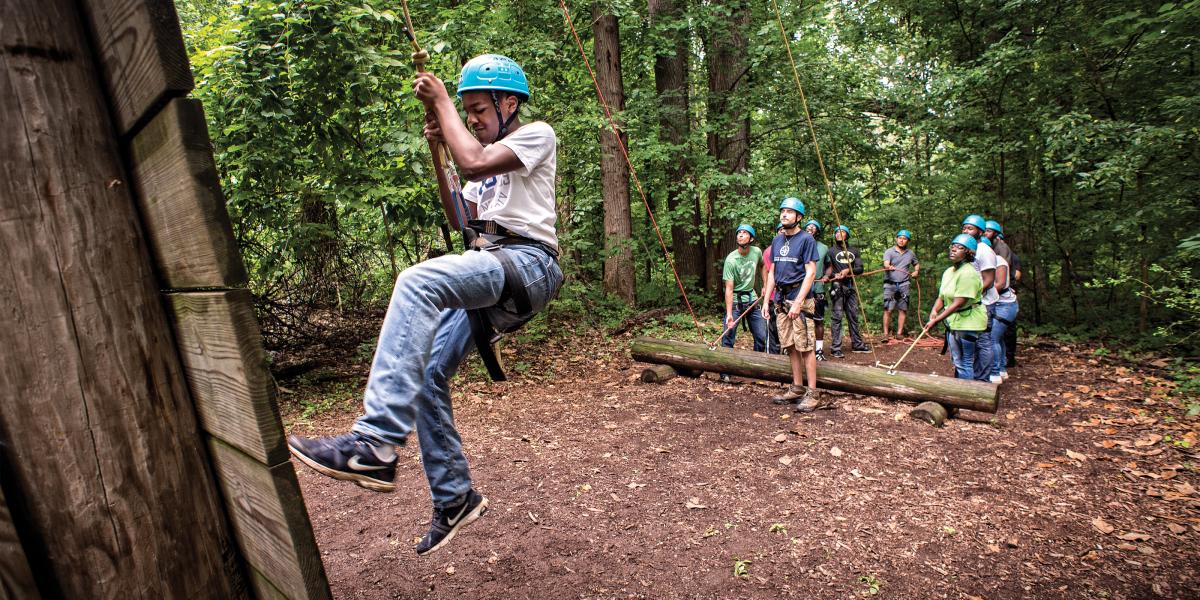Building Trust in Treetops
Evidence shows police-youth program works in Baltimore.
Precariously balanced on cables 25 feet above the ground in Leakin Park, a Baltimore kid and a police trainee are terrified—together. Starting at the tips of this Y-shaped ropes course they must coordinate every tentative step to meet in the middle and then edge to the end.
Success hinges on communication.
Creating positive encounters is the gist of this police-youth program at the Baltimore Chesapeake Bay Outward Bound (OB) School. Established in 2008, it’s the first and only one nationwide. Through focus groups, interviews and surveys, Peter Winch, MD, MPH, and his research team have found that the program dissolves tensions and long-held stereotypes on both sides.
Initial data analysis shows that after the all-day experience—which includes ground-level activities—youth found officers less aggressive, racist, rude, strict and scary.
Elena Broaddus, MSPH ’13, now a PhD student in International Health’s Social and Behavioral Interventions program, teamed with Winch to launch the ongoing study in 2011, after working at the Baltimore OB as an instructor.
“We’re building the evidence that it’s successful,” Broaddus says. “We have to use that evidence to drive political commitment.”
Since the unrest that followed Freddie Gray’s death in late April, 3,000 police and an equal number of Baltimore City School students have committed to participate in OB programs that began in September.
Powerful as a day of trust building in the treetops may be, it isn’t enough to forever break down barriers, the researchers insist. In hopes of lasting change, they’re drafting plans with OB to link program participants with long-term initiatives in the city.
